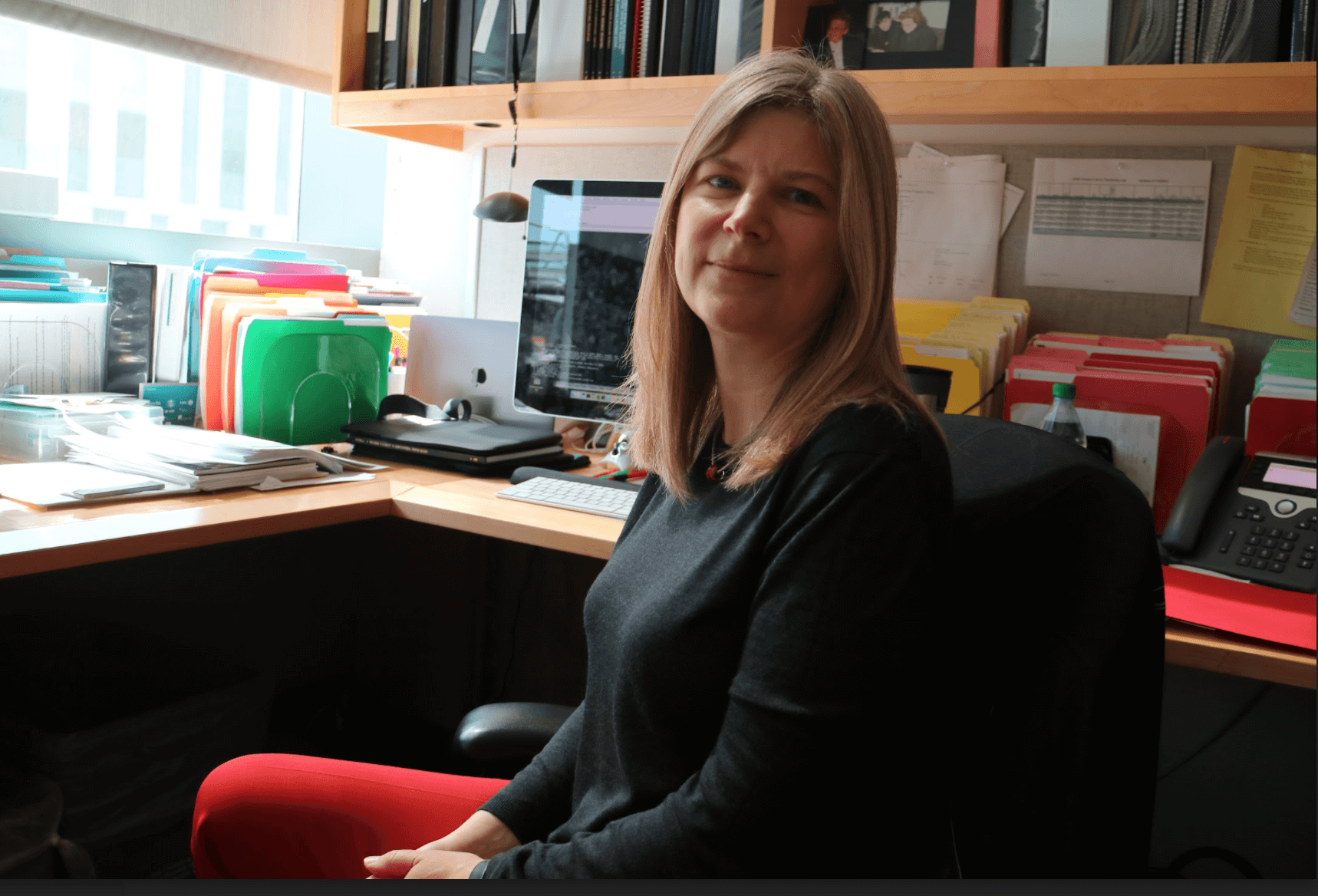
Interview with Tanja Kortemme by Alexa Rocourt
1. In a couple sentences, tell me about what you do in your work.
We develop methods to engineer biological molecules, proteins that have new biological functions. We do that by developing computational algorithms that help us create models of these proteins that are at the detail where we know where all the atoms are in a molecule so that we can really design them, as we call it, at atom-level detail. Then we combine that with experimental studies to test out whether the molecules actually work the way we think they should.
2. What’s your favorite part about being a scientist?
I have many favorite parts. I really like finding out that what we’ve designed actually works, so I like being an engineer. I also like being a biologist. I like when we discover something that we didn’t expect. We generally spend a significant amount of time figuring out why this happened. So it’s about putting the entire picture together to learn something new but also really understanding what is new about it.
The other part that I like about this is I don’t do it on my own. I do it with students and postdocs in my lab, and with other scientists at UCSF and elsewhere.
3. What have you created or discovered that you are most proud of?
On the engineering front, one thing that was very interesting to us was that we got together with people who think about very different problems, who are mathematicians working on how robots move and the mathematics of how you would program the motions of a robot. It turns out that we can use the same ideas and methods to program how a biological molecule works. So we collaborated with a mathematician and robotics expert to help us develop our own methods, and that was big leap for us to be able to do that. We are still working on it. We figured out how it works and now we are pushing it to new directions.
A second one that I’m very proud of has to do with a system that people had worked on for almost a hundred years. It’s one of those paradigm systems in biology, and we wanted to use it because it was so well characterized. We had a model of how it would behave, and that was one of the cases where we found something very unexpected. We revised how one of these paradigm systems in biology worked to learn something new. That was a very interesting discovery.
4. At the end of the day, why does your work matter?
I hope it matters in many ways. I hope our method development helps many other people engineer proteins with new functions. That matters because we are not doing this alone, we are doing this in a rather large academic community. It turns out there are more than 20,000 people who have registered to use our software, and there are also a number of start up companies as well as large ones who use our software. Once in a while we talk to their scientists and give them advice, and we learn a little bit about how it helps them develop protein therapeutics, for example.
The other thing where I hope it matters is in terms of the collaborations we built and the people in all the collaborating labs. I hope our work helps them to pursue their ideas.
5. Outside of work, what do you do to relax?
I think what helps me relax most is going hiking and backpacking; really going away where there are no people except for my husband, who I do this with, and just enjoying nature and maybe walking up to a lake and spending the day in some beautiful environment and having the space and time to do so.
6. What situation do you think you’d feel the most out-of-place in? What is something that makes you uncomfortable?
I don’t think anyone has ever asked me this. Sometimes I feel very out of place in the middle of a group of people, if I don’t directly know what my connection to these people would be. In those situations, more often than not, it turns out to be a great experience because I learn something new that I had not expected.
I also feel out of place if I go to a different country. I try to figure out what about my experiences and my feelings relate to everyone around me, and I discover that things can be very different.
7. In 100 years, what do you want to be remembered for?
To have created or discovered something interesting. To have collaborated and worked with people who will go on to do amazing things.